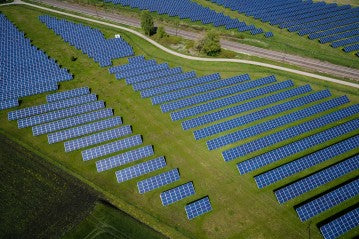
In recent years, solar panels have gained popularity as a reliable and environmentally friendly method of charging batteries. However, many people wonder if using a 24V solar panel instead of a 12V panel can improve the charging speed of their batteries. In this article, we will explore the factors that affect battery charging speed with solar panels, the advantages of using a 24V solar panel, and the expected charging speed of a 12V battery with a 25-watt solar panel. Additionally, we will compare 24V and 48V solar systems to help you determine which one is better suited for your needs.
Factors Affecting Battery Charging Speed With Solar Panels
Before delving into the advantages of a 24V solar panel, it is important to understand the factors that influence battery charging speed with solar panels. These factors include:
1. Solar Panel Wattage: The wattage of the solar panel directly affects the amount of power it generates. Higher wattage panels produce more electricity, which leads to faster battery charging.
2. Solar Panel Efficiency: The efficiency of the solar panel determines how well it converts sunlight into electricity. Higher efficiency panels can generate more power from the same amount of sunlight, resulting in faster battery charging.
3. Sunlight Intensity: The intensity of sunlight, which varies throughout the day and in different geographical locations, directly impacts the charging speed. Stronger sunlight provides more energy for the solar panel to convert into electricity, leading to faster battery charging.
4. Battery Capacity: The capacity of the battery plays a crucial role in determining the charging speed. A larger capacity battery will take longer to charge compared to a smaller capacity battery, even with the same solar panel.
Advantages of Using a 24V Solar Panel for Battery Charging
Now that we understand the factors affecting battery charging speed, let's explore the advantages of using a 24V solar panel:
1. Increased Efficiency: 24V solar panels are generally more efficient than their 12V counterparts. This increased efficiency results in better power generation and faster battery charging.
2. Reduced Energy Loss: When charging batteries, energy loss occurs during the conversion and transmission processes. With a higher voltage system like a 24V solar panel, the energy loss is relatively lower compared to a 12V system. This means more energy is effectively transferred to the battery, improving charging speed.
3. Longer Cable Runs: 24V solar panels allow for longer cable runs without significant voltage drop. This flexibility is particularly beneficial in installations where the solar panels are located far from the battery storage system. Reduced voltage drop ensures efficient power transmission, resulting in faster charging.
Expected Charging Speed of a 12V Battery with a 25-Watt Solar Panel
To understand the charging speed of a 12V battery with a 25-watt solar panel, it is important to consider the battery's capacity and the efficiency of the panel. Assuming an average battery capacity of 100Ah and an average solar panel efficiency of 15%, we can estimate the charging speed.
A 25-watt solar panel operating at 15% efficiency can generate approximately 3.75 watts of usable power (25W * 0.15 = 3.75W). Charging a 12V, 100Ah battery with this power output will take around 26.7 hours (100Ah / 3.75W = 26.7 hours). However, it's worth noting that this is a rough estimate, and actual charging times may vary based on the factors mentioned earlier.
Which Is Better: 24V or 48V Solar System?
Both 24V and 48V solar systems have their advantages and are suitable for different applications. Here are some considerations to help you determine which system is better for your needs:
1. Power Requirements: If you have higher power requirements or plan to expand your solar system in the future, a 48V system may be more suitable. It can handle larger loads and offers greater flexibility for scaling up.
2. Cost: In general, 24V solar systems are more cost-effective compared to 48V systems. However, if your power requirements necessitate a 48V system, the initial investment may be higher.
3. Efficiency: 48V systems tend to be more efficient due to reduced energy losses during transmission. This increased efficiency can result in faster battery charging and overall better performance.
Conclusion
When considering the charging speed of batteries with solar panels, factors such as panel wattage, efficiency, sunlight intensity, and battery capacity play significant roles. While using a 24V solar panel can improve charging speed compared to a 12V panel, it's important to consider other factors as well. Additionally, the choice between a 24V and 48V solar system depends on your specific needs and requirements. By understanding these factors and considering your power requirements, you can make an informed decision about the best solar panel system for your battery charging needs.

0 comments